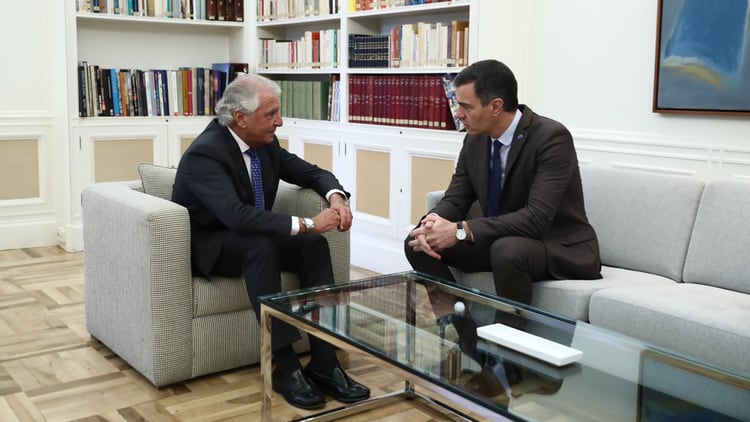Eduardo González
The acting Minister of Foreign Affairs, José Manuel Albares, will attend the General Affairs Council (GAC) of the EU again today to defend the official use of Catalan, Basque and Galician within the Union. The officialization of these three languages in the EU is one of the commitments assumed by the acting President of the Government, Pedro Sánchez, with the Catalan independentists to obtain their support in the investiture vote.
On September 19, the Government sent Albares himself to the meeting of the General Affairs Council – which is usually attended by ministers or secretaries of State who directly deal with European issues – to obtain the support of the Twenty-seven for the European officialization of the three languages. However, the European partners decided that same day that there was no urgency in making the official use of these languages official and opted to postpone any decision in this regard pending a legal opinion from the Council of the EU on the consequences of the measure and of an analysis of the economic, political and practical impact it would have.
Barely ten days later, the acting minister declared in Murcia, on the occasion of the informal ministerial meeting on General Affairs and Cohesion Policy, that the EU Governments had agreed to “work at 27, on the introduction of Catalan, Galician and Basque in the EU multilingual regime” and announced “to all EU ministers” that the Spanish Presidency would include, in the October GAC, “a specific point to respond, during this month, to as many questions raised as we can for the Member States,” he continued. “I have once again confirmed the willingness of all EU countries to work with Spain on this proposal,” he said. “No Member State has taken the floor to point out any aspect that worries or concerns them, or to hinder it,” and, as in the previous GAC in Brussels, “no one, and could have done so, raised any veto in this regard,” he added.
Lots of doubts
The truth is that the alleged unanimity that Albares champions seems far from secure. Diplomatic sources consulted by The Diplomat have pointed out that no one shares the “sense of urgency” that Spain conveys to its partners on this matter and that the rest of the governments consider it premature for a decision to be made without having thoroughly examined issues on which the Government has not yet presented details, for example, what would be the estimated cost of adding these three co-official languages to the 24 already recognized in the EU or how it plans to cover the number of translators and interpreters that would be necessary.
Also holding back the options for agreement is the fear among several delegations regarding the legal fit in the Treaties – although Spain defends that the official status of these languages is recognized by its Constitution and exposes their introduction in the Congress of Deputies – and by the possible “effect “domino” that could open the door to regional languages in other member states.
So far, no Member State has taken a position against the Spanish proposal and some have been receptive from the first moment, but the decision requires unanimous support and there are several who ask to study the process more cautiously. For now, Sweden has been the first country to be publicly undecided and to ask for a “further examination of the legal and financial consequences of the proposal.
For its part, Finland has warned that the use of Catalan, Basque and Galician in the EU can slow down decision-making at the community level and delay the entry into force of future regulations. Furthermore, for countries like Belgium or the Netherlands it is difficult to make a decision without the relevant evaluations on the impact or articulation of the entry of three new languages and without a reflection on the way in which this will affect the functioning of the European Union. For other countries like France, where the recognition of regional languages is a delicate matter, reservations go beyond technical elements. Furthermore, Spain is not the only country with minority languages in its territory and other delegations are concerned that opening this debate could generate a call effect that awakens similar demands in other regions.







